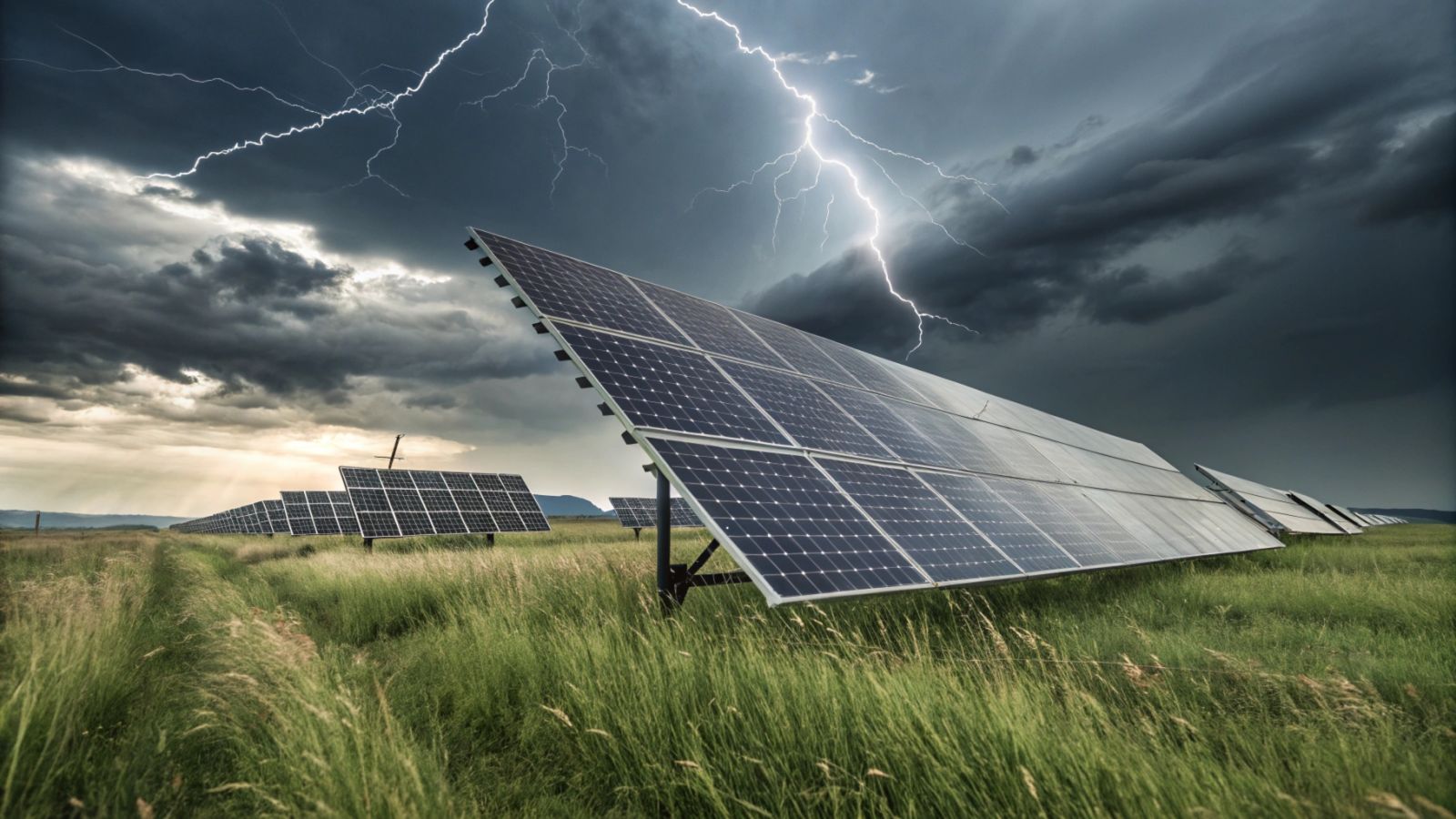These solar panels feature AI that protects them from storms 🌪️
Published by Cédric,
Article author: Cédric DEPOND
Source: Physics of Fluids
Other Languages: FR, DE, ES, PT
Article author: Cédric DEPOND
Source: Physics of Fluids
Other Languages: FR, DE, ES, PT
Follow us on Google News (click on ☆)
At PSL University, a team from the Center for Material Forming has combined artificial intelligence and fluid dynamics to create solar panels more resistant to extreme winds. Thanks to advanced simulations, these panels can now make decisions to protect themselves while optimizing energy production.

Photovoltaic panels are a key component in the fight against climate change. They convert solar energy into electricity, thereby reducing reliance on fossil fuels. However, their vulnerability to strong winds poses a challenge to their widespread adoption.
Wind can have both positive and negative effects on these installations. At low speeds, it cleans the panels of dust and improves their performance by reducing heat. But when gusts become violent, they can damage the panels and disrupt their operation for weeks.
To address this issue, researchers tested various parameters, such as the tilt angle and spacing of the panels, to minimize risks. Solar tracking systems were adapted to adjust the panel orientation based on weather conditions.
The key innovation of this research lies in the use of AI. Through machine learning algorithms, the panels can detect wind conditions and autonomously adjust their positions. This approach maximizes energy production while reducing potential damage.
Professor Elie Hachem, the project leader, claims this technology could significantly change the management of solar panels by enabling better adaptability to adverse weather. The AI system not only responds to wind conditions but also proactively optimizes the panel angle to minimize risks.
The study's findings demonstrate that this technology is not only effective but also scalable. In other words, it could be deployed on a large scale to protect solar panels in regions most exposed to extreme weather conditions.
This breakthrough could mark a turning point in how solar installations are designed. By offering a dynamic and reactive solution to the challenges of climate change, it paves the way for more sustainable and resilient energy systems.
With the increase in extreme weather events, this technology could become a standard for solar installations, ensuring their long-term reliability and contribution to the energy transition.
What is machine learning applied to solar panels?
Machine learning, a branch of artificial intelligence, enables computer systems to learn and improve their performance without explicit programming. In the context of solar panels, this technology allows installations to automatically adapt to wind conditions.
Researchers used machine learning to empower solar panels to independently decide on the best position to adopt during gusts. The algorithms analyze weather conditions in real time and adjust the panel angle to minimize damage while maximizing energy production.
This approach contrasts with traditional methods, where panels are simply sheltered during strong winds. Machine learning enables more creative and efficient solutions, ensuring greater resilience to bad weather while maintaining electricity generation.